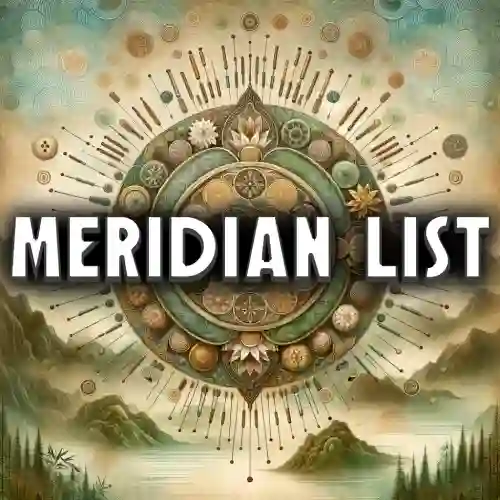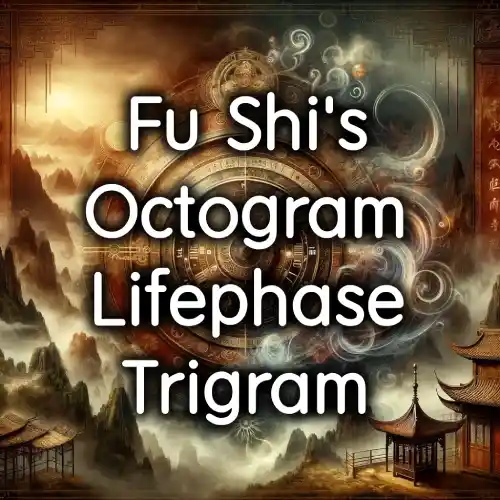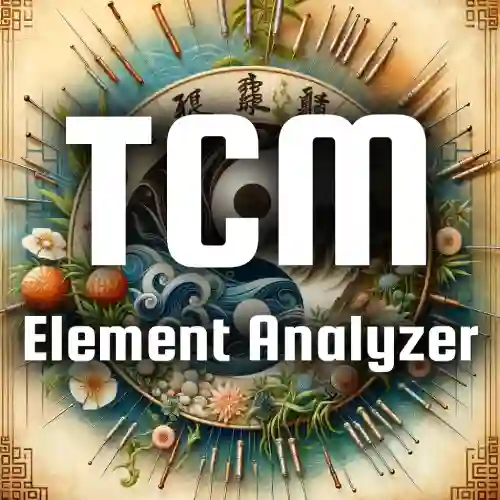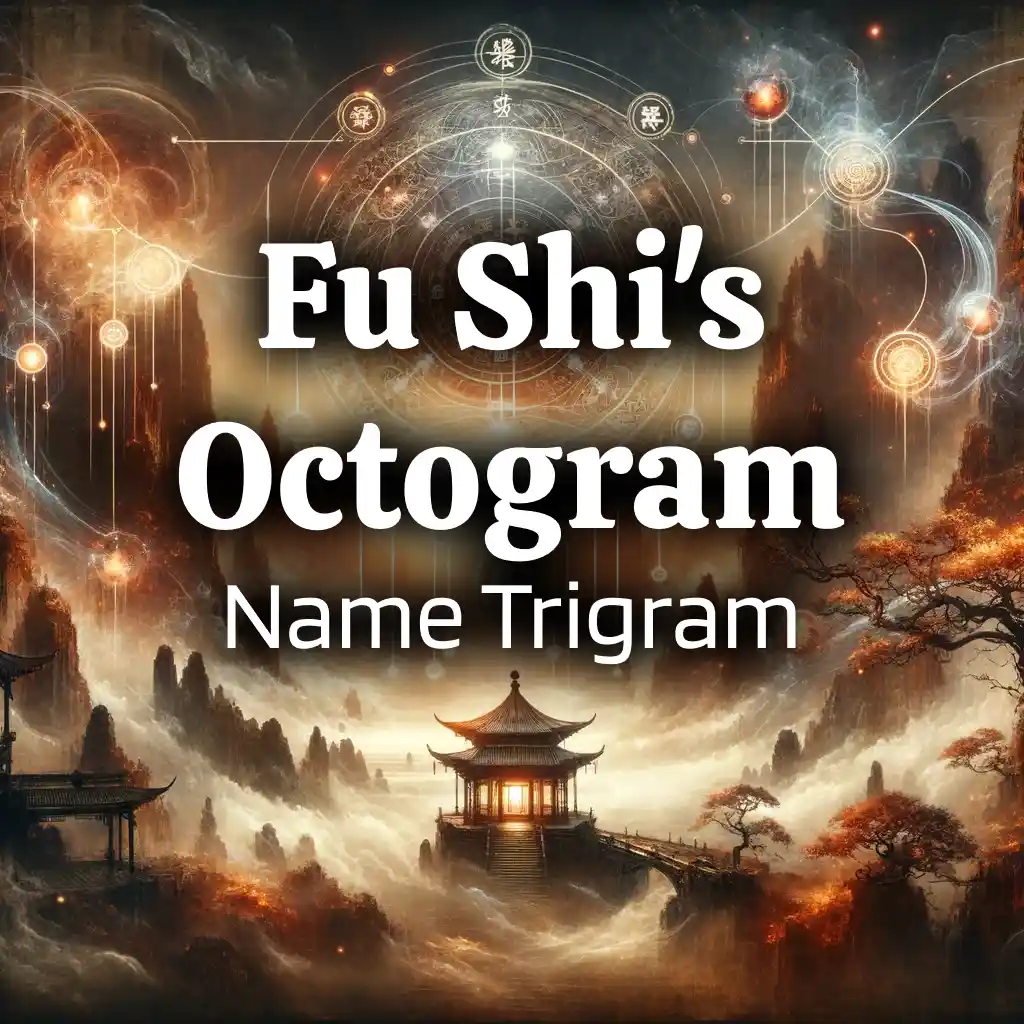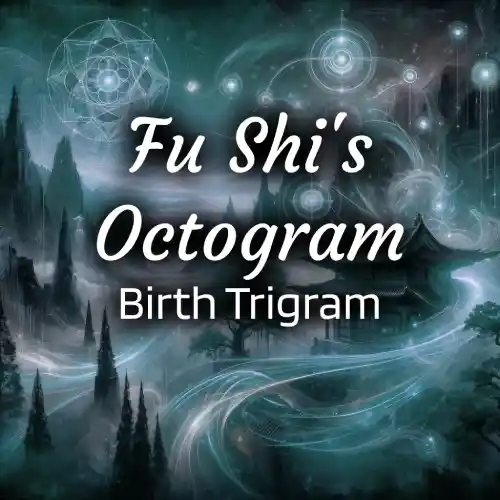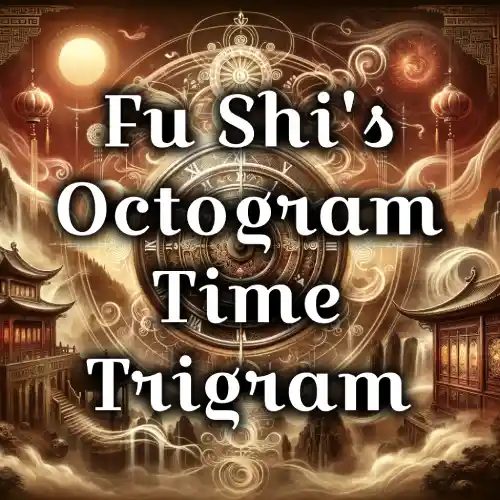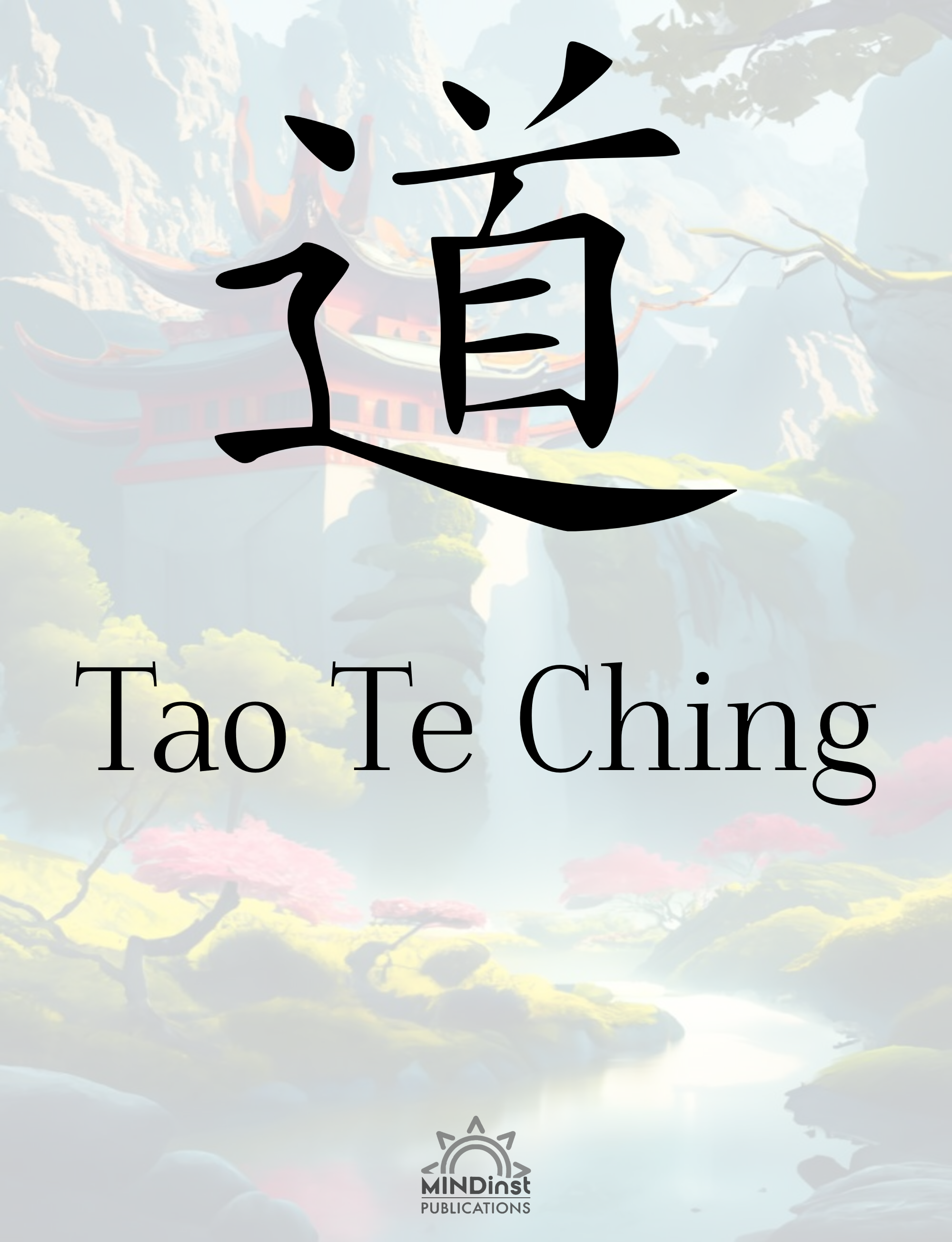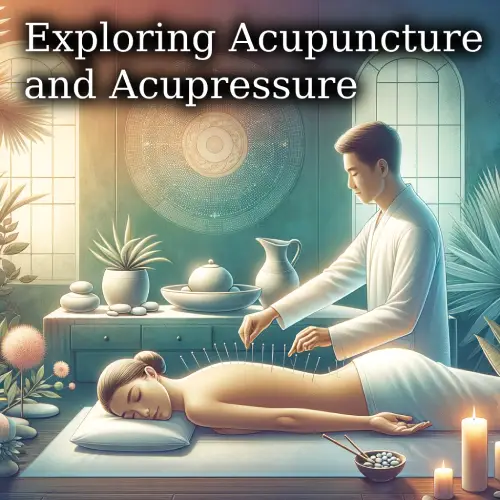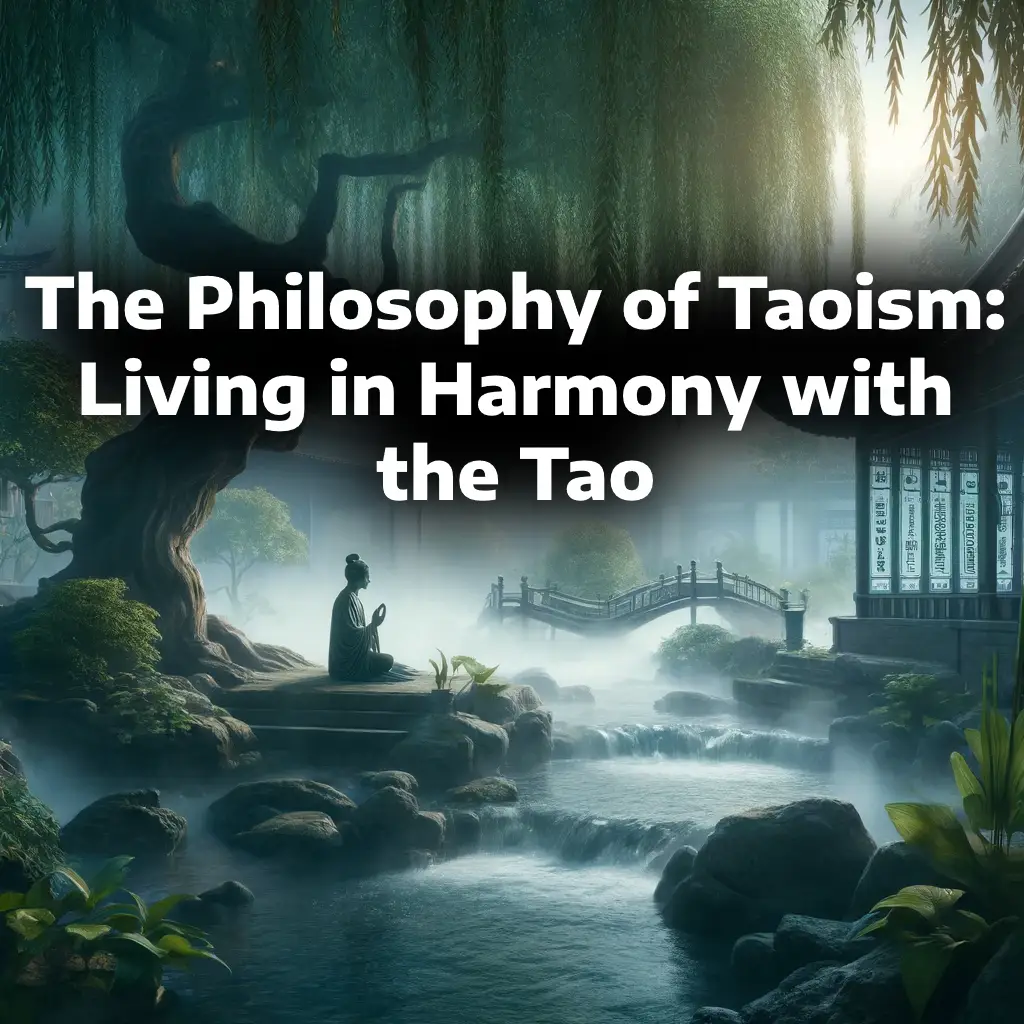
The Philosophy of Taoism: Living in Harmony with the Tao
Written by: Greg Phillip TalusDate: 01.03.2024
Tags:
Philosophy Taoism Simplicity
Taoism, also known as Daoism, is an ancient Chinese philosophy that emphasizes the importance of living in harmony with the Tao, which is often translated as "the way" or "the path". The Tao is a concept that encompasses the fundamental forces of the universe, and Taoists believe that one can achieve happiness, peace, and balance by aligning themselves with it.
The philosophy of Taoism is often attributed to Lao Tzu, a legendary Chinese sage who is said to have written the Tao Te Ching, a book that serves as the foundation of Taoist thought. The Tao Te Ching is a short text, consisting of 81 verses, that provides insight into the nature of the Tao and how one can align themselves with it.
One of the key themes of Taoism is the idea of non-action, or wu-wei. This refers to the idea that one should not try to control or manipulate the world around them, but instead let things unfold naturally. Taoists believe that when people try to exert too much control over their lives, they cause imbalance and conflict, and that the best way to live is to let the Tao guide you, rather than trying to impose your own will on the world.
Non-action does not mean passivity, but rather the art of living in the present moment, in harmony with the natural order of things. To be in a state of wu-wei means to be present, attentive, and attuned to the flow of life around us. This is not a passive state, but rather a state of active engagement with the world that is free from egoistic desires or compulsive actions.
Taoism also emphasizes the idea of balance and harmony.
The Tao is seen as a force that embodies both yin and yang, two complementary aspects of the universe that are in constant balance. Yin represents the feminine, dark, and receptive aspects of the universe, while yang represents the masculine, light, and active aspects. Taoists believe that people should strive to achieve balance in their own lives, both internally and in their relationships with others. This means embracing both the light and the dark, the positive and the negative, and recognizing that both are necessary for a harmonious existence.
Another key aspect of Taoism is the idea of simplicity. Taoists believe that the more one simplifies their life, the closer they are to the Tao. This means letting go of material possessions and materialistic desires, and instead focusing on what is truly important: relationships, inner peace, and spiritual growth.
Taoists also place a great emphasis on the importance of self-cultivation. This involves developing the self in order to better align oneself with the Tao. This may involve practices such as meditation, mindfulness, and introspection, and it is seen as an ongoing process of self-discovery and growth.
In terms of spirituality, Taoism is often described as a non-religious philosophy, although it does contain elements of spirituality. Taoists do not worship a deity or gods, but instead focus on their connection to the Tao and their own inner nature. They believe that the Tao is accessible to everyone, and that one can achieve spiritual enlightenment through self-cultivation and alignment with the Tao.
Taoism has had a profound impact on Chinese culture, and its influence can be seen in many aspects of Chinese life, including art, literature, medicine, and martial arts. In particular, Taoist ideas about balance, simplicity, and non-action have had a lasting impact on Chinese thought, and continue to be a source of inspiration for many people today.
Despite its ancient roots, Taoism remains a relevant and practical philosophy for many people today. Its emphasis on balance, harmony, and non-action resonates with the growing desire for a more holistic and sustainable way of life, and its focus on simplicity and self-cultivation offers a much-needed alternative to the materialistic and consumer-driven culture that dominates much of the modern world.
One of the challenges of living in a world that is often characterized by chaos and uncertainty is finding a way to live in harmony with our surroundings. The philosophy of Taoism provides a practical and effective approach to achieving this goal. By focusing on non-action, balance, simplicity, and self-cultivation, we can learn to live in harmony with the world around us, and cultivate a more peaceful and fulfilling life.
One of the key benefits of Taoism is its emphasis on non-action, which is sometimes referred to as "effortless action". Non-action does not mean doing nothing, but rather the art of allowing things to unfold naturally, without trying to force outcomes. This is a challenging concept for many people, who are accustomed to a life of constant action, goal-setting, and striving. But by learning to let go of our desire for control, we can achieve a more peaceful and harmonious life.
The idea of balance is another key aspect of Taoism.
By recognizing the complementary nature of yin and yang, and striving to achieve balance in our own lives, we can cultivate a more harmonious existence. This means embracing both the positive and negative aspects of life, and recognizing that both are necessary for a balanced and fulfilling life.
Simplicity is another important aspect of Taoism. In a world that is often characterized by excess and materialism, Taoism encourages us to let go of our attachment to material possessions, and focus on what is truly important: relationships, inner peace, and spiritual growth. By simplifying our lives, we can reduce the distractions and clutter that can prevent us from living in harmony with the Tao.
Self-cultivation is also a key aspect of Taoism. By developing our own inner nature, we can better align ourselves with the Tao, and achieve spiritual enlightenment. This may involve practices such as meditation, mindfulness, and introspection, and is seen as an ongoing process of self-discovery and growth.
In addition to these key aspects, Taoism also offers a holistic approach to life that emphasizes the interconnectedness of all things. By recognizing our connection to the world around us, we can cultivate a greater sense of empathy, compassion, and appreciation for the natural world.
While Taoism is often described as a non-religious philosophy, it does contain elements of spirituality. Taoists believe that by aligning themselves with the Tao, they can achieve spiritual enlightenment and a greater sense of inner peace and harmony. This does not require any particular religious or spiritual beliefs, but rather a commitment to self-cultivation and alignment with the natural world.
In terms of its influence on Chinese culture, Taoism has had a profound impact on many aspects of Chinese life. For example, Taoist ideas about balance and harmony can be seen in Chinese art and literature, while the practice of tai chi, a form of martial arts, is heavily influenced by Taoist principles.
In addition, Taoism has also had an impact on traditional Chinese medicine.
Many of the principles of Chinese medicine are based on Taoist ideas about the balance of yin and yang, and the importance of cultivating a harmonious relationship between the body and the natural world.
Despite its ancient roots, Taoism remains a relevant and practical philosophy for many people today. Its emphasis on balance, harmony, and non-action resonates with the growing desire for a more holistic and sustainable way of life, and its focus on simplicity and self-cultivation offers a much-needed alternative to the materialistic and consumer-driven culture that dominates much of the modern world.
Whether one is seeking inner peace, greater self-awareness, or a more meaningful connection to the natural world, the philosophy of Taoism offers valuable insights and guidance. Its principles and practices can help us to navigate the complexities and challenges of modern life, and cultivate a more peaceful, fulfilling, and harmonious existence.
One of the central teachings of Taoism is the concept of Wu Wei, which is often translated as "non-action" or "effortless action." Wu Wei refers to the art of living in a state of flow, in which we allow life to unfold naturally without trying to force outcomes or impose our will on the world. Instead of struggling against the current of life, we learn to flow with it, and trust that the universe will guide us where we need to go.
This does not mean that we should simply sit back and do nothing. Rather, Wu Wei is about finding the balance between action and non-action, and learning to act in a way that is in harmony with the Tao. It involves being present, mindful, and responsive to the needs of the moment, rather than reacting out of habit or impulse.
Another key concept in Taoism is Yin and Yang, which are often symbolized by the iconic taijitu (yin-yang) symbol. Yin and Yang represent the complementary and interconnected aspects of the universe, such as light and dark, hot and cold, and male and female. The Taoist view of the universe is one in which these opposites are in a constant state of flux and balance, and in which each contains the seed of its opposite.
By recognizing the interconnectedness of all things, and learning to embrace both the positive and negative aspects of life, we can cultivate a more balanced and harmonious existence. This involves learning to let go of our attachment to dualistic thinking, and recognizing that every experience, whether "good" or "bad," is an opportunity for growth and learning.
Simplicity is another important aspect of Taoism.
In a world that is often characterized by excess and materialism, Taoism encourages us to let go of our attachment to material possessions, and focus on what is truly important: relationships, inner peace, and spiritual growth. By simplifying our lives, we can reduce the distractions and clutter that can prevent us from living in harmony with the Tao.
Self-cultivation is also a key aspect of Taoism. By developing our own inner nature, we can better align ourselves with the Tao, and achieve spiritual enlightenment. This may involve practices such as meditation, mindfulness, and introspection, and is seen as an ongoing process of self-discovery and growth.
In addition to these key aspects, Taoism also offers a holistic approach to life that emphasizes the interconnectedness of all things. By recognizing our connection to the world around us, we can cultivate a greater sense of empathy, compassion, and appreciation for the natural world.
Despite its ancient roots, Taoism remains a relevant and practical philosophy for many people today. Its emphasis on balance, harmony, and non-action resonates with the growing desire for a more holistic and sustainable way of life, and its focus on simplicity and self-cultivation offers a much-needed alternative to the materialistic and consumer-driven culture that dominates much of the modern world.
Whether one is seeking inner peace, greater self-awareness, or a more meaningful connection to the natural world, the philosophy of Taoism offers valuable insights and guidance. Its principles and practices can help us to navigate the complexities and challenges of modern life, and cultivate a more peaceful, fulfilling, and harmonious existence.


